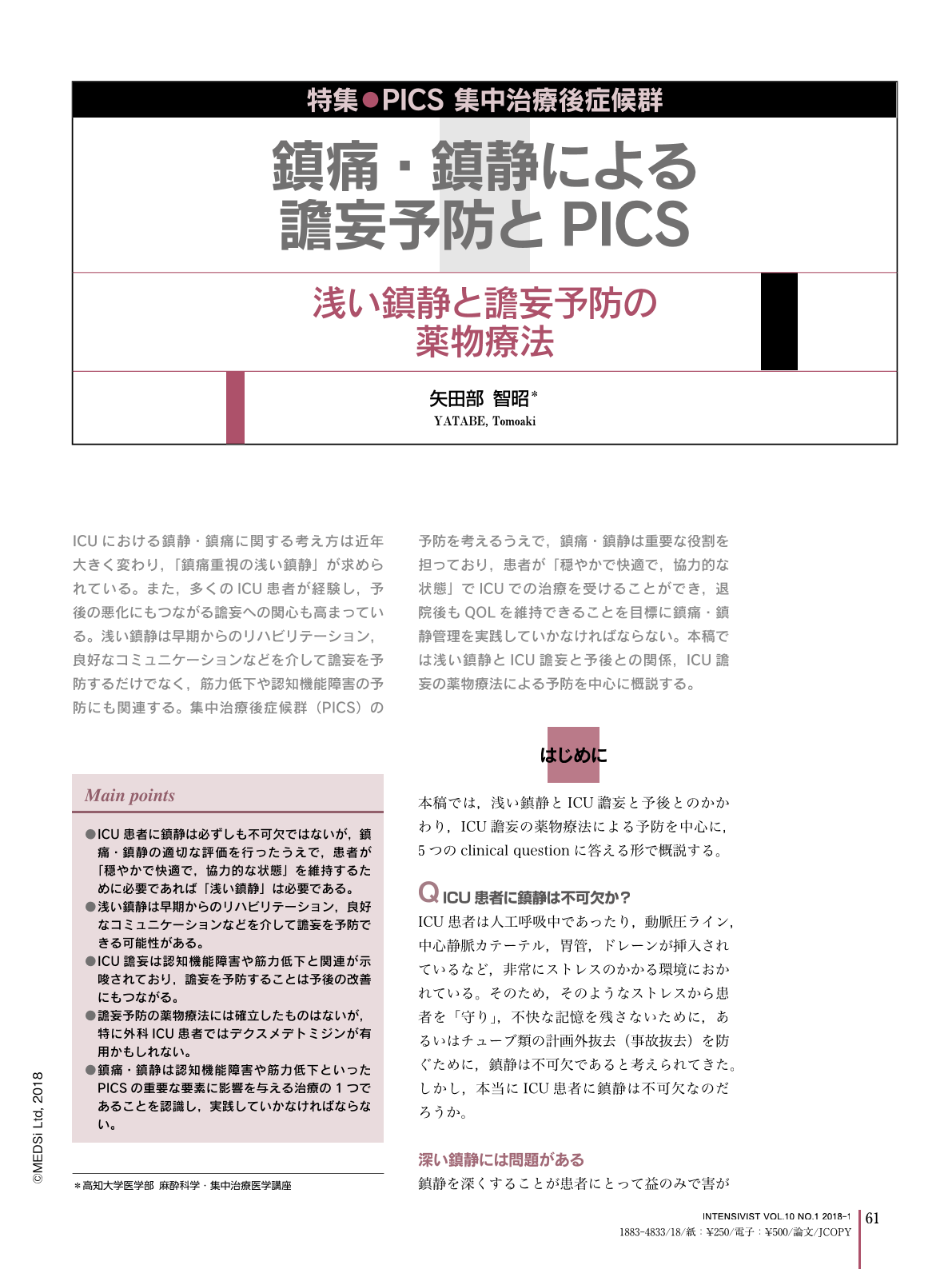Japanese
English
- 有料閲覧
- Abstract 文献概要
- 1ページ目 Look Inside
- 参考文献 Reference
ICUにおける鎮静・鎮痛に関する考え方は近年大きく変わり,「鎮痛重視の浅い鎮静」が求められている。また,多くのICU患者が経験し,予後の悪化にもつながる譫妄への関心も高まっている。浅い鎮静は早期からのリハビリテーション,良好なコミュニケーションなどを介して譫妄を予防するだけでなく,筋力低下や認知機能障害の予防にも関連する。集中治療後症候群(PICS)の予防を考えるうえで,鎮痛・鎮静は重要な役割を担っており,患者が「穏やかで快適で,協力的な状態」でICUでの治療を受けることができ,退院後もQOLを維持できることを目標に鎮痛・鎮静管理を実践していかなければならない。本稿では浅い鎮静とICU譫妄と予後との関係,ICU譫妄の薬物療法による予防を中心に概説する。
Main points
●ICU患者に鎮静は必ずしも不可欠ではないが,鎮痛・鎮静の適切な評価を行ったうえで,患者が「穏やかで快適で,協力的な状態」を維持するために必要であれば「浅い鎮静」は必要である。
●浅い鎮静は早期からのリハビリテーション,良好なコミュニケーションなどを介して譫妄を予防できる可能性がある。
●ICU譫妄は認知機能障害や筋力低下と関連が示唆されており,譫妄を予防することは予後の改善にもつながる。
●譫妄予防の薬物療法には確立したものはないが,特に外科ICU患者ではデクスメデトミジンが有用かもしれない。
●鎮痛・鎮静は認知機能障害や筋力低下といったPICSの重要な要素に影響を与える治療の1つであることを認識し,実践していかなければならない。
Pain management and sedation in the intensive care unit (ICU) have significantly changed. Deep sedation is harmful for a majority of ICU patients because of associated complications and poor outcomes. Light sedation with optimal pain management is required. Light sedation may prevent delirium through early mobilization/rehabilitation and good communication between patients and ICU staff. Light sedation may change patient outcomes since ICU delirium can lead to long-term cognitive dysfunction and muscle weakness. These two long term sequelae are key components in the development of postintensive care syndrome (PICS). Pain management and sedation play an important role in the prevention of PICS. Adequate pain management and sedation may provide optimal conditions for patients to receive ICU care and rehabilitation, and subsequently, a high quality of life for ICU survivors. This article summarizes the current evidence on light sedation, ICU delirium and outcomes for critically ill patients, and focuses on pharmacological prevention of ICU delirium.

Copyright © 2018, MEDICAL SCIENCES INTERNATIONAL, LTD. All rights reserved.


